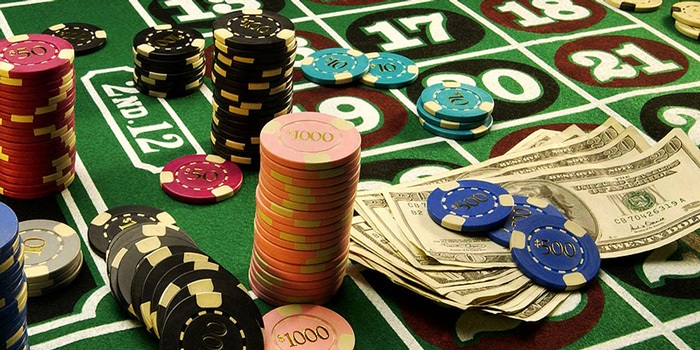For some casino gamers, nothing’s more depressing than their own bankroll. Irrespective of how much they start out with from time to time, they still find themselves running on fumes somewhat relentlessly.
If you fit into this bracket, it’s up to you and you alone to do something about it. Above all other errors, the biggest mistake anyone can make is to completely overlook the importance of bankroll management. If you don’t give your bankroll the TLC it needs, it will deal you a bum hand, every single time.
Still, it’s one thing to be aware of the importance of bankroll management – it’s something else entirely to do anything about it. Admittedly, the whole financial management side of gambling isn’t particularly exciting. Nevertheless, it’s a necessary evil for anyone looking to get the most out of their online gaming.
So for those wondering why their bankroll does nothing but bum them out, chances are it’s down to one of the following reasons:
You ignore the house edge
All casino games across the board favour the house to one extent or another. You cannot and will not tip the odds in your favour, as doing so would render the entire casino business model redundant. But at the same time, this doesn’t mean you can’t focus on the games that have the lowest house edge. Prime examples of which being blackjack, baccarat and certain bets at the roulette table – all giving you the highest possible chance of winning something. Or at least, a slightly lower chance of losing.
Unless you factor the house edge into your gambling activities, you’re doomed from the start. If you don’t already understand what the house edge is all about, make now the time to do a little homework.
Not assigning yourself a budget
Unless you have a near limitless pile of cash to play with, you need to set yourself a sensible budget. Even high-rollers take to the tables with certain limitations in mind. The idea being that you assign yourself a certain amount on a daily, weekly or monthly basis, which represents the maximum you can cope with losing during this time. Just as soon as this budget has been exhausted, you walk away until the next allocation date…whenever that may be.
If you can honestly throw £500 down the pan without suffering any real consequences, go right ahead. By contrast, if £50 of weekly losses is likely to do your finances a hammer-blow, you need to think very carefully about your gambling budget.
Diving in at the deep end
Unless you already know exactly what you’re doing, you should be thinking about starting small. The problem being that the glitz and glamour of the whole casino experience can spur poor decision-making among amateurs. Starting out with small stakes – at least until you learn how things work – really is the best way to go. Particularly if you are also dealing with a relatively limited bankroll.
Try to remember that the casino gaming isn’t going anywhere, so there’s really no need to rush into things. Take your time and accept the fact that if you aren’t satisfied with your general performance, it’s up to you to do something about it.
Ignoring the 5% rule
This particular rule tends to split gamblers right down the middle, but is nonetheless a good habit to get into. The idea being that rather than throwing wagers around at random, you instead assign a maximum bet equivalent to 5% of your total bankroll. For example, if you set out with £100, you ensure that you never bet more than £5 in any given turn. If you win another £100 and have £200 to play with, you can then increase this to a £10 maximum bet and no more.
By contrast, starting out with £100 and placing bets of up to £50 means potentially burning through your entire bankroll in less than 60 seconds. Something that’s far easier to do than most realise, until it’s too late.
Allowing yourself to be bled dry
You should also assign yourself some kind of fixed limitation, with regard so how much you are willing to lose. In a working example, you set out with a budget of £100, establishing ahead of time that you will only commit a maximum of 20% to any given game. You sit down at the blackjack table with £100, you play until you’re down to £80 and this is the point you walk away. In addition, it’s also worth establishing an outright maximum walk-away figure. So if you find yourself down to just 10% of your bankroll, you take this £10 and walk away.
It’s not only a case of knowing when to walk away from a losing streak, but also giving yourself the time to clear your head. If things are not going well at the blackjack table, take a breather and try your luck elsewhere.
Getting carried away with winnings
Savvy gamblers know that the worst thing you can do with your winnings is to treat them like free money. You head to the table with £100 and you stick to your guns, betting no more than say £10 at a time. Somehow, you find yourself striking it lucky and increasing your bankroll on the day to £500. In doing so, you suddenly begin throwing caution to the wind, firing our wagers of £200 and not caring about the consequences. Despite the fact that given your bankroll, this is clearly the kind of money you can’t afford to be throwing away.
Knowing when to walk away during a winning streak is just as important as quitting while you’re behind. However lucky you are, try to remember it’s only a matter of time until your luck runs out.
Buying into strategies
Last but not least, one guaranteed way to drive your bankroll deep into an early grave is to buy into any kind of ‘guaranteed’ winning strategy whatsoever. There are literally hundreds of different strategies doing the rounds for every table game in existence, which all have one important thing in common:
They don’t work.
If you make the mistake of basing your decisions on half-baked strategies, it’s game over. Stick with common sense and your bankroll – however limited it may be – will stretch far further.
You might also find the following articles interesting:
- Are Slots Really Better Than Blackjack?
- A Beginner’s Guide to Roulette – Getting Started
- 10 Things to Buy Yourself After Making Your First Billion














